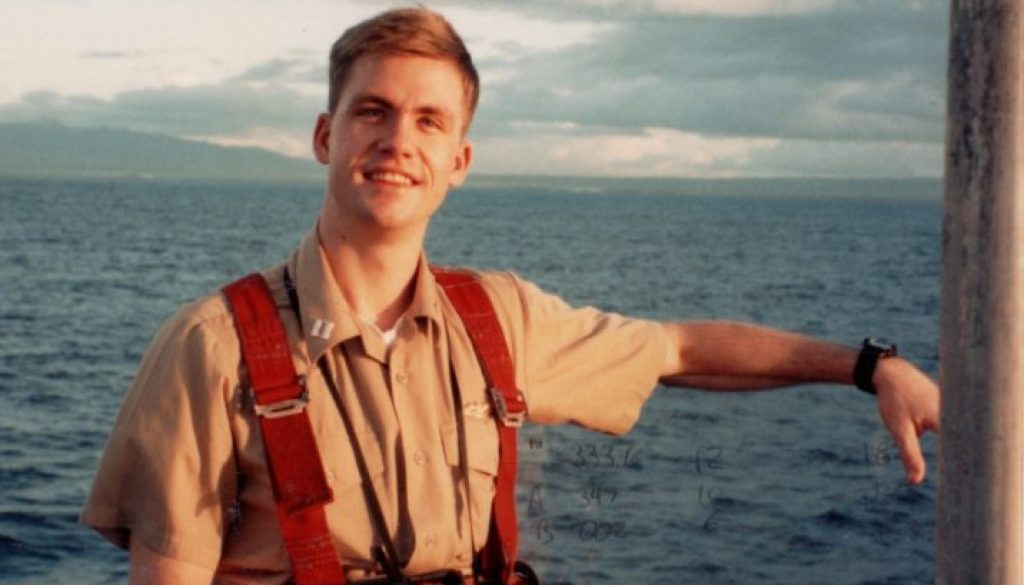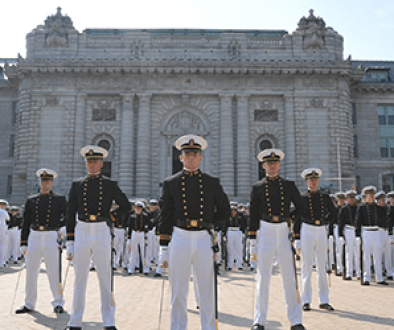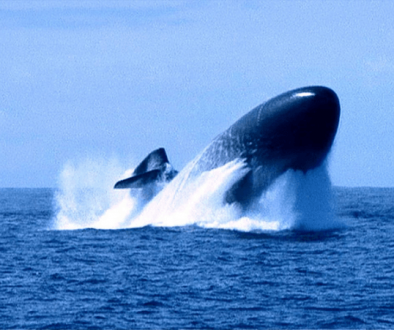The Hardest Thing I Had to Do as a Veteran
Even tougher than crossing the equator and international date line at the same time, submerged…
I hated going to the unemployment office and telling them how I had been out looking for jobs. Just one month earlier I was the man in charge of an important and dangerous exercise. Now I felt like a loser. My whole sense of self-worth had flipped itself upside down when I got out of the Navy.
The previous month I was the Acting Chief Engineer on a billion-dollar nuclear submarine, with 60 people reporting to me. We were wrapping up a 3 month dry dock period and took the boat out to sea to make sure everything worked well.
After major work that required an opening to be cut in the side of the boat, as well as work on the entire engine room, the way to test that everything worked was simple in theory yet complex in practice. First get out of drydock, and don’t sink next to the pier.
Next, go to sea, submerge, go down a hundred feet, and make sure nothing leaks at the higher pressure. Then go down another hundred feet, repeating the process all the way until test depth. Hang out at test depth for a while and hope nothing leaks. At test depth a seawater leak, even through a tiny hole, fills the boat with water so fast the crew only has minutes to react to prevent sinking to the bottom of the ocean.
We didn’t make it to the end of the exercise and had to stop early. At 300 feet the rate of leakage on one of the sea water valves on the evaporator, although slow, was too much. We surfaced and came back into port to repair it. I was done.
I had resigned my commission as an officer in the Navy a few months earlier. My orders said to get out anytime during the month of August. It was August 30th. Instead of giving me time to try to find a job the captain had dumped a whole bunch of responsibility on me as I was trying to transition out of the Navy.
I hadn’t complained about being the Acting Engineer because the real Chief Engineer, Tom C., was finally able to go get his surgery to repair his hernia. Tom and I had worked together for over a year now, and he had been working for months with a hernia. The captain hadn’t let him go get surgery on it because everything was urgent and important regarding the nuclear power plant, the dry dock repair, and the upcoming inspections. On August 30th Tom came back, all healed up. I was out of there.
Unemployed, Limited Prospects
So there I was in Hawaii, unemployed. I had talked with some of the recruiters that help place people getting out of the military in jobs at different companies and knew that I could go be a factory shift supervisor at some place on the mainland. But I wanted to stay in Hawaii. I started looking for a job. It was hard!
Part of the reason it was difficult was I didn’t really know what I wanted to do, and I had a hard time getting job interviews. So I kept collecting unemployment checks every week, and going to the office to let the State of Hawaii unemployment office clerk know that I was diligently searching for a job. It was embarrassing. But I did it anyway.
What it really meant to be out of the Navy was starting to sink in. I no longer had a community of people that I knew and worked with every day. I no longer had a group of friends with similar background and experience to hang out with like I had for the last 9 years. Sure, the people were still around, but they were on different schedules, were living a different way of life. I was no longer one of them.
I got married two months before I got out of the Navy, and my wife had an ok job. She was supportive of my change in circumstances, which that really helped. Thank goodness we had no children or pets to take care of, because that would have really added to the stress.
I didn’t know anything about the business world. I was making my way in completely unfamiliar territory while under the time pressure of unemployment benefits running out, and I had no support group of friends anymore. It was a difficult time.
Looking back, I can understand why some veterans get so disoriented or depressed with all the changes and difficulty in their life when they get out of the military. It would have been really hard for us if we had kids, and got moved back to a part of the country where job were tough to get.
Knowing what I know now, what should I have done differently?
I would have learned more about how the business world works years before getting out of the Navy. That’s a tough thing to do, because the way business is portrayed books and movies is completely unrealistic. It’s one of those things where you have to be in the thick of it to learn. Probably the best thing to do is to read or listen to biographies of successful business people, especially the parts of their stories when they’re starting out. Everyone starts at the bottom, and the details of how to move up are important.
Also, I would have learned specifically identifiable skills and gotten the equivalent commercial or industrial certifications for them while I was still in the Navy. That would have been hard to do, because it would have above and beyond all the Navy learning and certifications that I had to do. But it would have been worth it.
When I say certifications, I don’t mean a college degree. I mean actual industry certification for a specific job that shows people objectively that you’re qualified to do that job. That’s a very different thing than a degree. Employers hire for skills, not learning ability.
For example, for project management that would be the PMP, for Information Technology there are certifications from Cisco, Microsoft, and other major vendors. I am sure that there are equivalent certifications for other skills like trucking, fitness instructor, accountant, electrician, and plumber.
I would have started talking with recruiters more than a year before I got out. They would have been able to give me some of this specific type of advice as well as help me figure out what I wanted to do after I got out, and what part of the country I wanted to be in. I could have also planned vacation to go to different hiring conferences and talk to people that actually wanted to hire veterans during that year of preparation. Tough to do that when deployed, but it would have helped.
I actually ended up getting a job in Hawaii. A company took a chance on me because of my experience with the nuclear power plant. I got a job as a technical sales and service rep for an industrial water-treatment company. Although I traveled to the island of Kauai every two weeks to meet with sugar mills, I didn’t really like the job, and I was a poor salesperson.
Two years later we move to Colorado and I got a job with a big company in the semiconductor industry. I didn’t do a very good job as a sales person there either, but I was starting to learn how the business world worked. I was slowly moving up.
By the time I was on my 4th job after getting out of the Navy I had figured out how to be somewhat successful. I did well in that job… so I went and started a company around a new technology at the time and learned a whole bunch of other lessons. But that’s a different story.
Looking back, those were some difficult years I spent learning my way around the business world. The five years I had spent in the Navy wasn’t wasted, because I had learned leadership, management, and how far I could push myself, all things that helped me in the future.
I had some difficult months in the Navy. We spent more than two months submerged under the water north of Japan, working shift work the whole time, with ice cold water on the other side of the hull, trying to be as quiet as possible to remain undetected by the others that were also out there underwater.
But those months right after getting out of the Navy were some of the toughest ones I had ever experienced.
It’s a big change getting out of the military, and the people who volunteered as teenagers to serve our country need as much help as we can give them when they finally finish their service.



